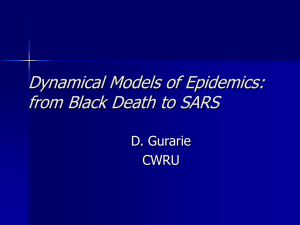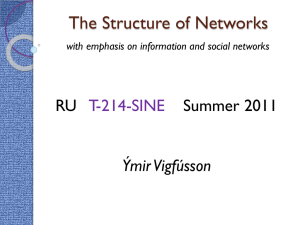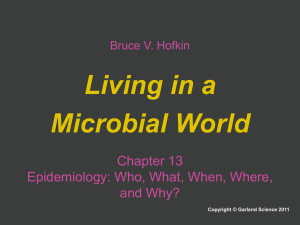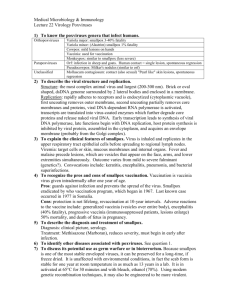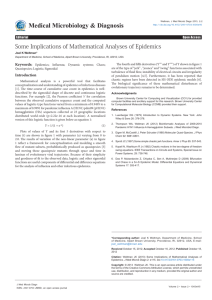Epidemics Essay.doc - parkupperhistory20thforbush
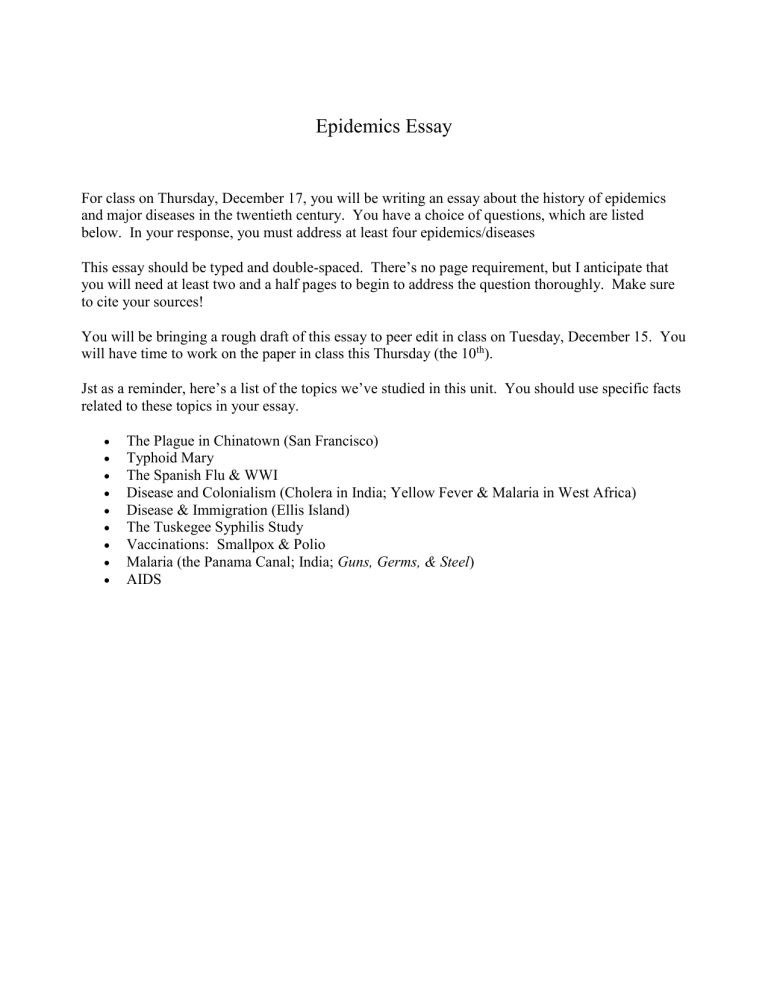
Epidemics Essay
For class on Thursday, December 17, you will be writing an essay about the history of epidemics and major diseases in the twentieth century. You have a choice of questions, which are listed below. In your response, you must address at least four epidemics/diseases
This essay should be typed and double-spaced. There’s no page requirement, but I anticipate that you will need at least two and a half pages to begin to address the question thoroughly. Make sure to cite your sources!
You will be bringing a rough draft of this essay to peer edit in class on Tuesday, December 15. You will have time to work on the paper in class this Thursday (the 10 th
).
Jst as a reminder, here’s a list of the topics we’ve studied in this unit. You should use specific facts related to these topics in your essay.
The Plague in Chinatown (San Francisco)
Typhoid Mary
The Spanish Flu & WWI
Disease and Colonialism (Cholera in India; Yellow Fever & Malaria in West Africa)
Disease & Immigration (Ellis Island)
The Tuskegee Syphilis Study
Vaccinations: Smallpox & Polio
Malaria (the Panama Canal; India; Guns, Germs, & Steel )
AIDS
Please respond to one of the following questions:
1. Wide-scale Effects of Epidemics
Which epidemic that we have studied had the most devastating effects? You should consider at least three of the following effects in your response: health/death rate, economic, social, racial/ethnic, environmental. or
Epidemics seem to breed stigma and discrimination -- Chinatown plague victims, Typhoid Mary, the Tuskegee Study "patients," and gay men during the AIDS crisis are all examples. Which of these provides the greatest instance of mistreatment, and why? And why does this mistreatment happen?
2. Responses to Epidemics
Which measures have been most effective in stopping epidemics? or
Of all of the epidemics we've studied, which was handled the most effectively? Which was least effective? or
Choose three epidemics that we've studied and how society and governments have reacted to them.
Have these reactions been more similar or different? Why?
3. Moral Implications
What are the moral implications of trying to stop epidemics through quarantines, vaccinations, and immigration restrictions? When and where were governments most and/or least moral in trying to stop epidemics in the twentieth century? or
When facing an epidemic, which should be considered more important: the rights of the individual or the needs of society? How was this question answered during epidemics of the twentieth century?
4. Hypothetical Scenario
All over the world, mini-epidemics of a smallpox variant – called Smallpox 1B -- are surfacing.
This new strain of smallpox seems to be a mutant strain for which we have no known vaccine (but, given our history with smallpox, it is likely that we will be able to manufacture a vaccine within the next two years). Smallpox 1B spreads quickly and has a 25% mortality rate. For reasons yet unknown, the disease appears to thrive in wet locations.
Significant outbreaks of Smallpox 1B have been recorded in China, Costa Rica, Cameroon, Chile, and the Czech Republic. Just last week, the town of Portland, Oregon, reported thirteen cases of
Smallpox 1B. This is the only location in the US that has reported any instances of Smallpox 1B.
You are a Professor of Health History, and you have been asked to make a presentation on
Smallpox 1B to President Obama. What will you recommend he do, based on what we have learned about disease prevention and the social and economic consequences of various preventative measures? What should he use as his historical models? And what mistakes of history should he avoid?


